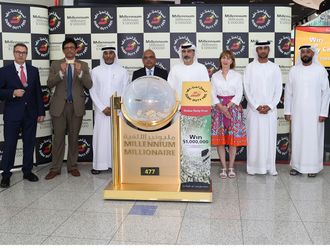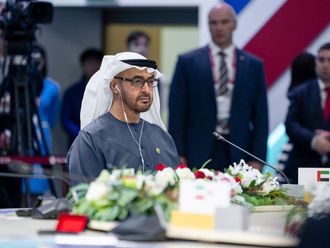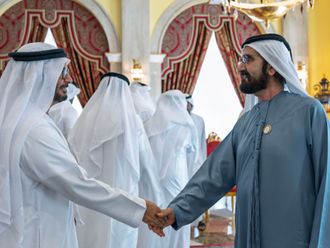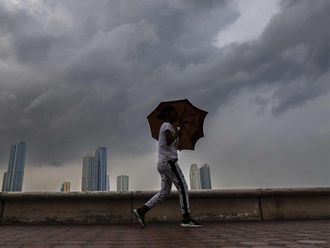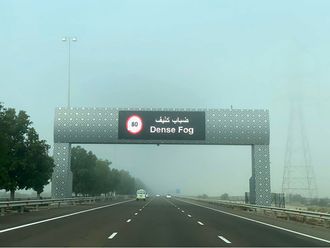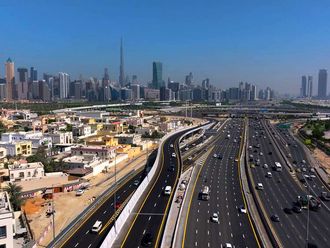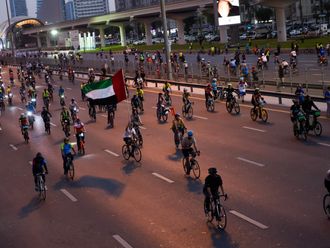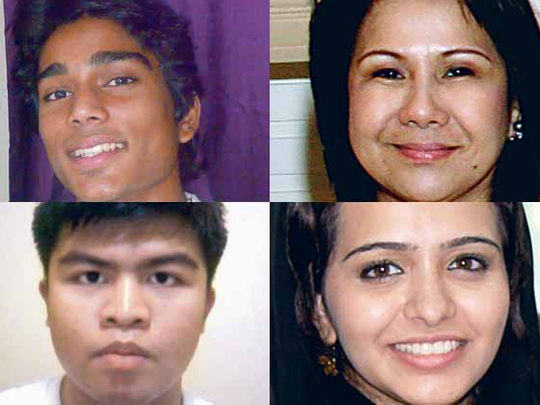
Dubai: English may be a universal language, but mother tongues hold the key to communicating culture, an expert has said.
Unesco marks International Mother Language Day on Sunday. The day has been observed since 2000, and aims to promote "linguistic and cultural diversity and multilingualism", according to un.org.
Fatima Badri, a professor at the Department of English at American University of Sharjah (AUS), believes such an initiative is important.
"With English invading all public and private spaces — the world over — an international day celebrating the maintenance of mother tongues is essential," she said in an e-mail interview with Gulf News.
"Language plays an important role in the construction of personal, cultural and social identity," she added.
Liza Bathan, a Filipina nurse in Dubai, said she has always spoken Tagalog with her son Paul Bathan.
She said family members in the Philippines speak the language and this was one way her son could fit in back home.
"This day acknowledges our cultural background," she said. "We have to celebrate that."
Her son, who studies in a Dubai university, said he uses Tagalog only at home and speaks in English with his friends — even if they are Filipino. But he said he would feel a deep sense of loss if he was unable to speak in his mother tongue. "Tagalog connects me to my culture," he said.
With English fast becoming the common thread connecting diverse groups, some youngsters are finding little appeal in learning their mother tongues.
Kenneth Monis, 17, can understand the south Indian language Konkani, but cannot speak it.
"I don't think it is necessary to learn the language as it is not used anywhere," the Sharjah resident said.
His mother, Winnie Monis, said she had hoped her son would speak the language and had debated the topic with her husband. Her husband was of the opinion that it would be better for their children to pick up English because of its universality.
"The elderly people [in India] don't speak English," the homemaker said. "My son will miss out."
Mother tongues face a grave danger if they are not passed on, she said.
"If we don't speak our language, it will perish."
Earlier this month, linguists across the world mourned the death of the last speaker of the ancient language ‘Bo' on India's Andaman Islands.
Fatima, the AUS professor, warns of the "threat" facing the Arabic language in the UAE. Given the nation's large expatriate workforce, English is necessary as a second language, she said.
But it is "dangerous" when children from Arabic-speaking backgrounds are being raised with English as their main language, she said.
"Arabic is being restricted more and more for ritualistic functions… today Arabic is threatened in the UAE."
Manal Al Ansari, a Dubai resident, lists Arabic as her native language.
"My mum encourages me to speak in Arabic… but I prefer English," she said.
But, she said, only Arabic gives her a feeling of belonging to her community when she is travelling.
"When I am in a foreign country, I yearn for this language," she said. "Even an Arab stranger becomes a relative with this language."
UN commemoration: Celebrating diversity
International Mother Language Day is celebrated on February 21 every year. It was proclaimed by the General Conference of Unesco in November 1999 and aims to turn the spotlight on linguistic diversity. The initiative came into being as a recognition of Bangladesh's Language Movement Day, observed in the nation since 1952. Campaigners in what was then East Pakistan sought official language status for Bengali. Six protesters were killed and the demonstrations apparently ignited the independence struggle.
Sources: bbc.co.uk and unesco.org
UAE events
The Abu Dhabi Music and Arts Foundation (ADMAF) has rolled out a selection of events designed to celebrate International Mother Language Day especially for students around the UAE.
"The Mother Language Day provides an opportunity to celebrate our mother Arabic language," commented Hoda Al Khamis Kanoo, founder of Abu Dhabi Music and Arts Foundation.
— Staff Report
Do you speak your mother tongue? Has it become more convenient for people to speak English these days?


